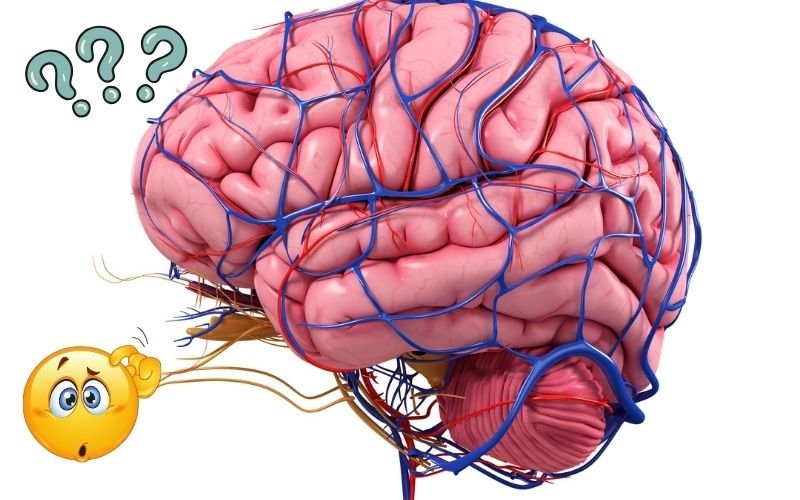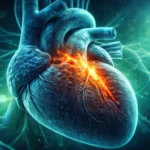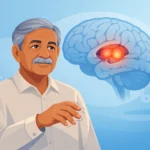Imagine trying to walk in a straight line now. Your muscles know what to do constantly. But, your brain struggles to coordinate the movements well. This lack of muscle coordination is called Ataxia. If you ask, “Ataxia what is it?”, it is a neurological sign. It shows a problem in the nervous system. This problem specifically affects balance and coordination greatly. For those seeking neurology treaatment and help in Delhi, knowing the Ataxia symptoms is the first step. This article explains the causes simply. We detail the modern treatment options available in Delhi.
Loss of Coordination, Ataxia Definition
Ataxia is not a disease by itself usually. It is actually a symptom of another condition entirely. The ataxia meaning in Hindi relates to the lack of orderly movement. It happens when the part of your brain that controls movement is damaged somehow. This damage results in jerky, clumsy, and often uncontrolled movements only.
The Brain Center: Ataxia Cerebellum
The cerebellum is the specific area of the brain affected most often. It is located at the back of the skull primarily. The ataxia cerebellum helps process signals from your eyes, ears, and muscles greatly. It fine-tunes all your movements carefully. Damage to this area severely impairs balance and coordination quickly.
Types of Balance Issues: Ataxia Types
Doctors classify Ataxia based on the cause or location of the damage usually.
- Cerebellar Ataxia: Caused by damage to the cerebellum only. This leads to issues with voluntary muscle movements mostly.
- Sensory Ataxia: Caused by damage to the nerves. This is called ataxia sensory. The brain loses the ability to feel the position of the limbs often.
- Vestibular Ataxia: Caused by issues in the inner ear system. This affects balance and spatial orientation greatly.
Causes of Ataxia
Ataxia can be caused by many different things. The cause can range from temporary problems to chronic genetic disorders sadly.
Acquired Causes
These develop later in life suddenly.
- Stroke or Head Trauma: Injury to the brain can directly damage the cerebellum easily
- Toxicity: Alcohol abuse or certain drug side effects can cause temporary Ataxia
- Infections: Conditions like chickenpox or encephalitis can lead to post-infectious ataxia sometimes
- Vitamin Deficiency: Lack of Vitamin B-12 or Vitamin E can affect nerve health greatly
Genetic Causes
These are inherited conditions often.
- Ataxia Friedreich: This is a progressive inherited ataxia types. It causes damage to the spinal cord and peripheral nerves mostly
- Ataxia Telangiectasia: This is a very rare, complex genetic disorder. It affects coordination, the immune system and blood vessel health greatly
Signs and Symptoms of Ataxia
The signs of Ataxia are mainly related to movement problems. They affect daily activities significantly.
- Unsteady Walking: The ataxia gait is the most common symptom seen. Walking is wide-based, jerky, and unbalanced constantly.
- Slurred Speech: Difficulty forming words clearly is common. This is called dysarthria sometimes.
- Eye Movements: Uncontrolled, rapid eye movements are often visible. This condition is called nystagmus.
- Fine Motor Difficulty: Trouble with tasks needing precision is common. Examples include buttoning a shirt or writing neatly
- Tremors: Shaking in the hands or limbs is often seen.
Neurology hospital in Delhi for Ataxia
Effective management of Ataxia requires a highly specialized team. A good Neurology hospital in Delhi offers a multidisciplinary approach always.
Diagnostic Excellence
The first step is correct diagnosis. This involves detailed neurological exams and imaging often. An expert Neurosurgery specialist in Delhi uses MRI or CT scans. They identify if the cerebellum or other parts are damaged well. Genetic testing helps confirm inherited ataxia types clearly.
Ataxia Treatment in Delhi
While most progressive ataxias are not curable, the symptoms are manageable. Treatment focuses on maximizing independence and function greatly.
- Physical Therapy: This improves strength, balance, and coordination greatly. It helps with the ataxia gait issue specifically.
- Occupational Therapy: This helps adapt daily activities for easier performance. They find tools to help with fine motor skills often.
- Speech Therapy: This helps improve speech clarity and swallowing ability greatly.
- Medication: Medicines can manage some secondary Ataxia symptoms. These include muscle stiffness, tremors, or dizziness often.
Ataxia presents significant challenges to mobility and independence. Primus Hospitals, as a leading Neurosurgery hospital in Delhi offers the expertise needed. Our team can effectively manage the complex Ataxia symptoms and help you manage them greatly.
FAQs
Both are genetic but ataxia friedreich mainly affects the spinal cord and nerves. Ataxia telangiectasia affects coordination, immune function and increases cancer risk sometimes
Physical therapy can significantly help the ataxia gait by teaching compensation techniques. It often improves stability and walking confidence greatly
Yes a severe lack of certain vitamins like B-12 can cause temporary Ataxia. Addressing the deficiency early can often reverse the symptoms completely
A neurosurgeon is usually only needed if a structural problem like a tumor is causing the Ataxia. A Neurology hospital in Delhi is sufficient for most management plans.
Ataxia sensory happens when nerves cannot send position information to the brain fast. Cerebellar ataxia happens when the brain itself cannot process the signals well.













